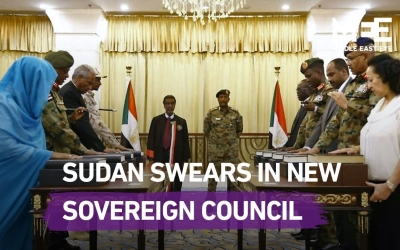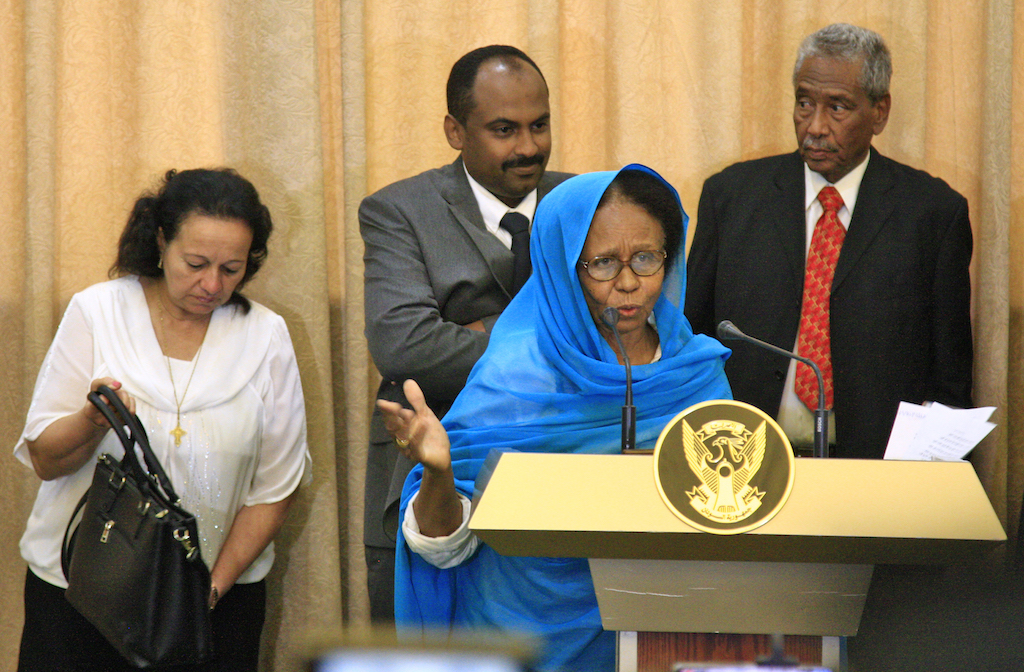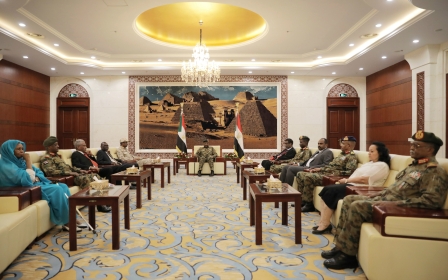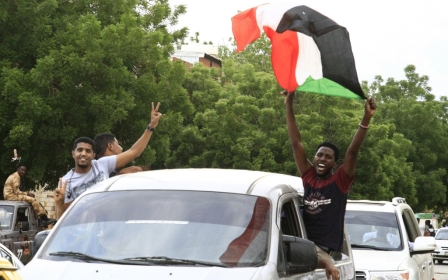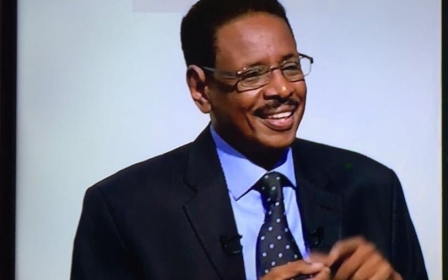Sudan's new rulers promise 'justice' for civilian deaths and economic growth
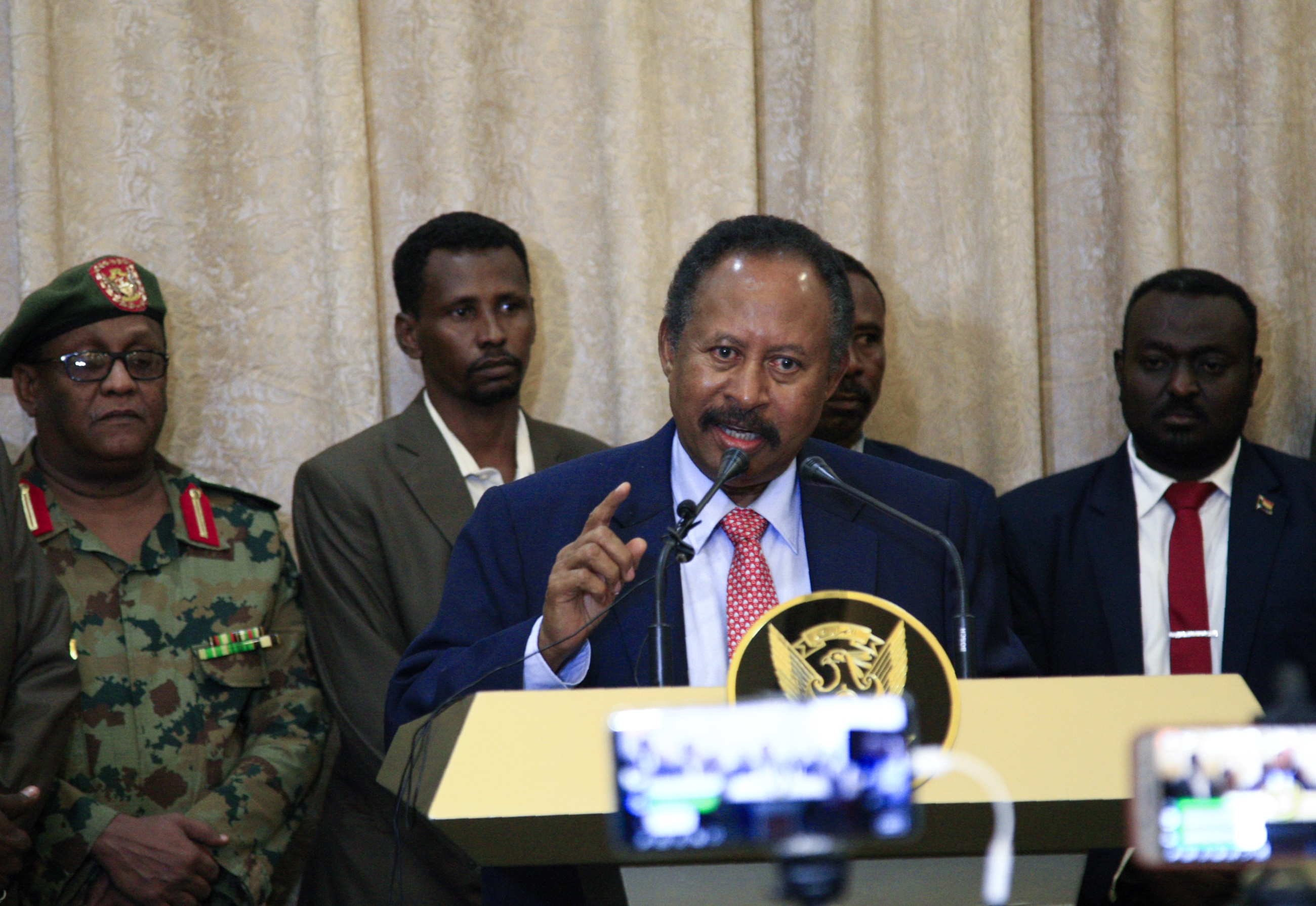
Fresh from being sworn in as one of the six civilians making up Sudan’s new Sovereign Council, Hassan Idriss says he’s got one major priority as a member of the ruling body: justice.
Dozens of Sudanese have been killed by security forces since demonstrations against former president Omar al-Bashir’s rule broke out in December.
Medics and protesters say 127 were killed in just one day in June as the peaceful sit-in protest, that had remained in Khartoum after Bashir’s ouster to urge civilian rule, was brutally dispersed by Sudanese security forces.
Although the military later said it regretted "mistakes" made during the operation, the bloodshed is still fresh in the minds of Sudan's pro-democracy campaigners - and for Idriss, the opportunity now exists to hold the perpetrators accountable.
He told Middle East Eye that he would work hard through the independent investigation committee that was established to investigate the killings.
The legal expert added that social justice was also a priority - as someone from the impoverished east of the country himself, he said there needed to be representation for all Sudan's citizens.
“One of the main reasons that I accepted my nomination to the sovereign council is to serve my people in Eastern Sudan, to end the marginalisation and fight the poverty in all of Sudan," he said.
The new sovereignty council, formally inaugurated on Wednesday, comprises 11 members - five from the military and six civilians - including two women and one Christian.
Rajaa Nicola Maseeh, a Coptic judge and the first Christian to lead Sudan, said they were determined to improve the lives of the Sudanese people, but that decades of authoritarian rule could not be overturned overnight.
“We only asked the Sudanese people to be patient as we may all know that the destruction that happened during the past 30 years is huge and may not be addressed in only three years," she told MEE.
"But we will double our efforts and work together in the council to meet all the demands of the revolution."
Transferral of power
The unveiling of the new council on Wednesday marks the first step in transferring power to a hybrid civilian-military administration after long months of negotiations between the military and the opposition Forces of Freedom and Change (FFC) group.
With Sudan's economy flatlining and unrest still rocking parts of the country, the new body has a daunting task ahead of it.
Speaking at a press conference in Khartoum on Wednesday, Sudan's new Prime Minister Abdalla Hamdok presented a reformation plan to revive the country in the 39-month transitional period.
Hamdok, who is a former deputy executive secretary of the United Nations Economic Commission for Africa, vowed to reform government institutions and promote good governance, rule of law, transparency and justice.
He also pledged to provide free health and education for the Sudanese people, as well as adopting a strict poverty-alleviation plan.
"Our banking sector has almost collapsed - we need to restore the trust in the banking sector," he said.
"There are many ways of doing that and I think we are with our colleagues in the FFC, putting a lot of efforts in coming up with concrete polices and plans to address this.”
He added he would put forward new moderate foreign policies to serve the interests of the country and promote the representation of women in government institutions and the cabinet, which he is set to announce next week.
Areas of dispute
One member of the sovereign council, Mohamed al-Faki Suleiman, said there were still areas of dispute between the civilian and military components in the council regarding the selection of the chief justice and the general prosecutor.
Addressing a press conference after he was sworn in, he revealed that some articles of the constitutional declaration may be changed to enable them to solve the dispute over the appointments.
'The military is now giving itself the right to reject the names nominated by the FFC for the posts of the chief justice and prosecutor'
- Ali Saeed Ibrahim, Sudanese Communist Party
“There are different opinions between us and the military component in the council regarding the names that we nominated for the posts of the chief justice and the general prosecutor," he stated.
"This issue is important and we are going to address it through the dialogue among us."
However, among some political groups there are more serious concerns about the nature of the new council.
Rebel movements and some leftists parties have come out against the agreement, saying that it doesn't address the issue of the conflict with Sudan's minorities in Darfur and other regions, while giving too much power to the military.
Mohamed al-Nair, a spokesperson for the Sudan Liberation Movement-Abdul Wahid faction (SLM-AW), told MEE his group continued to reject the agreement and the actions since taken on its basis, including the appointment of the new government.
“These steps, which are based on the agreement that was signed last week, don't represent us and don't address the root causes of the war," he argued to MEE.
"Furthermore, they will lead to the reproduction of the same trouble in Sudan, which is the concentration of the power in the hands of specific ethnic groups.”
For his part Ali Saeed Ibrahim, the acting spokesman of the Sudanese Communist Party, told MEE that the agreement gave more power to the military and would never lead to any democratic transformation in the country.
“As you can see, the military is now giving itself the right to reject the names nominated by the FFC for the posts of the chief justice and prosecutor, who are the cornerstones in implementing the justice in the country,” he said.
Middle East Eye delivers independent and unrivalled coverage and analysis of the Middle East, North Africa and beyond. To learn more about republishing this content and the associated fees, please fill out this form. More about MEE can be found here.


